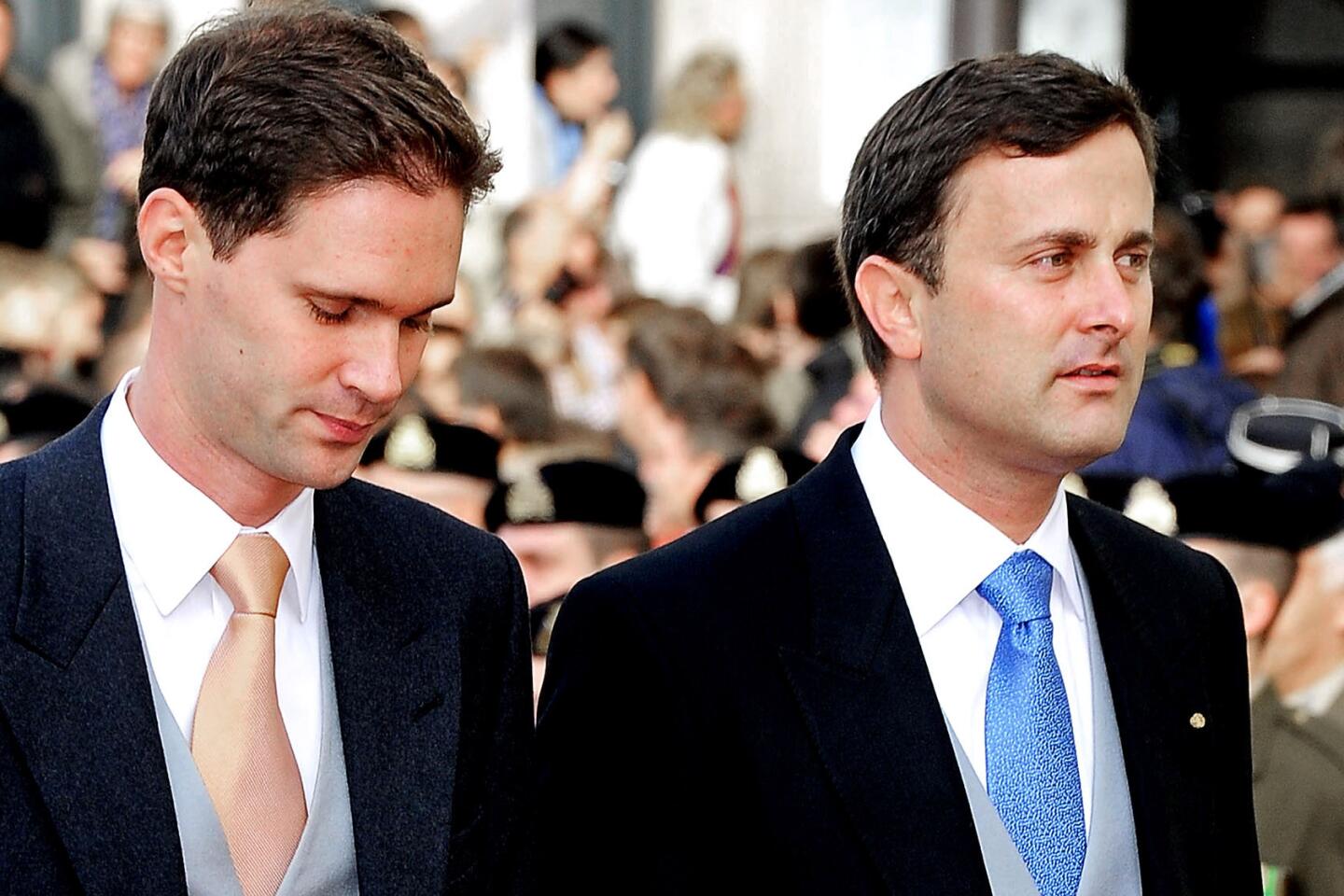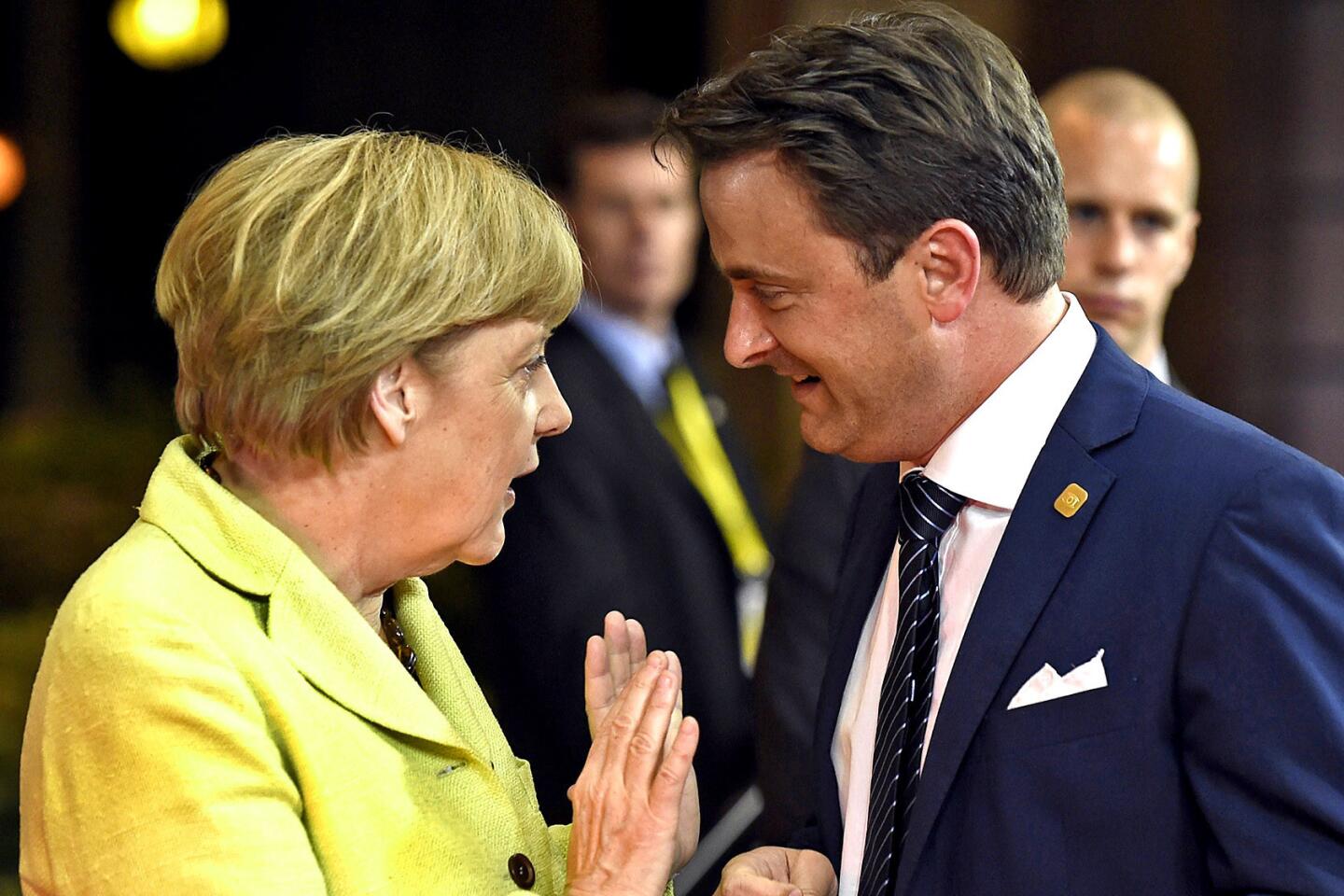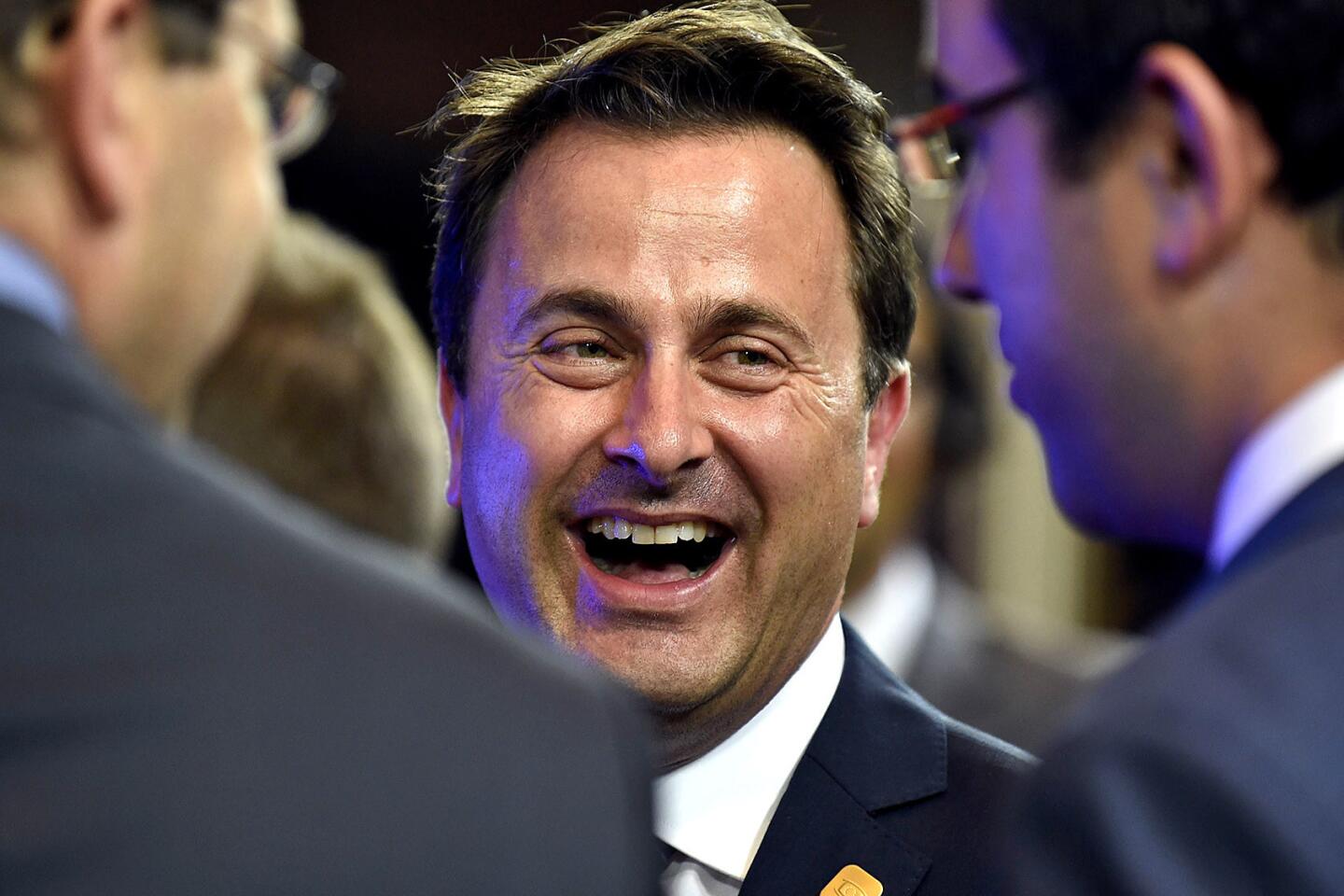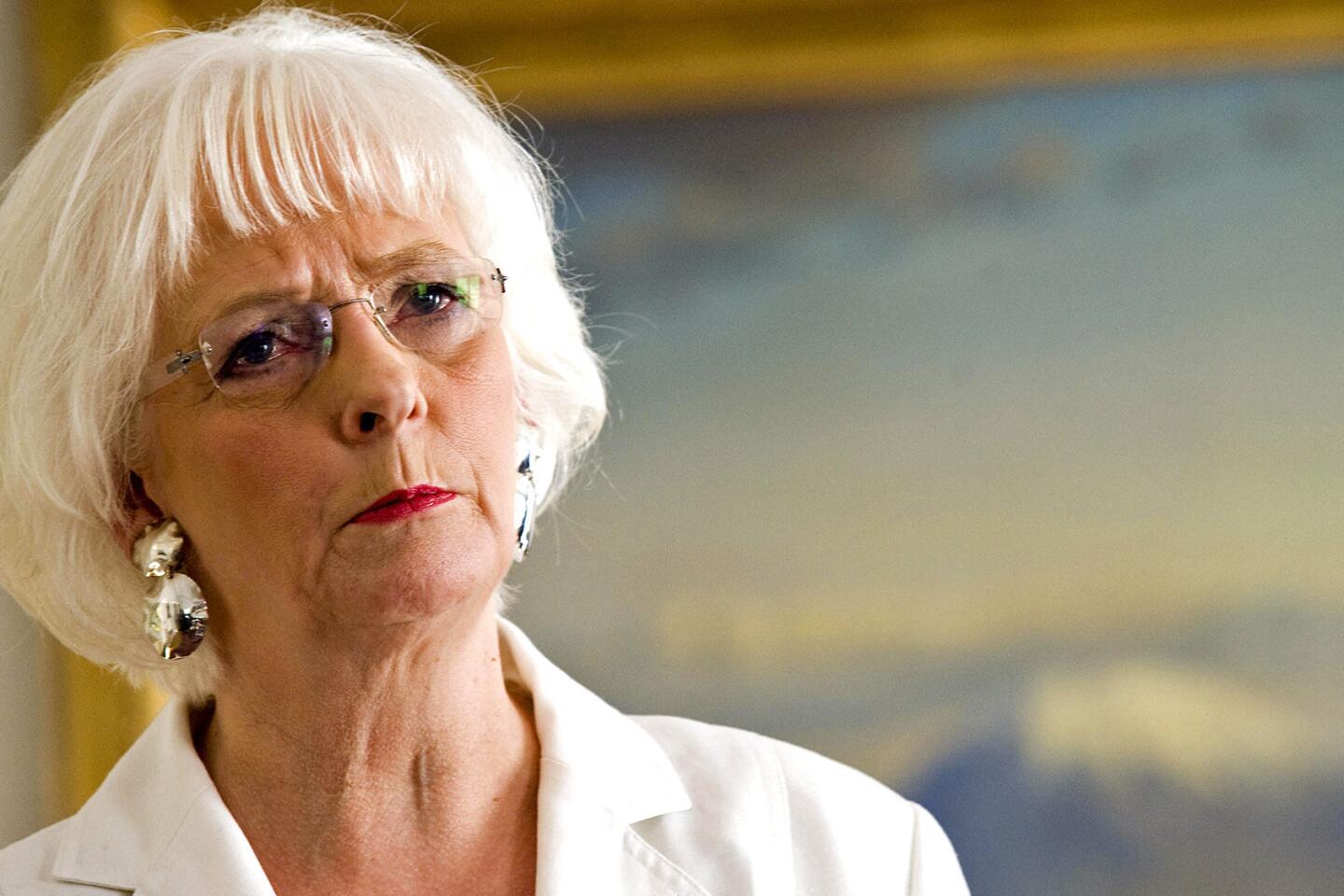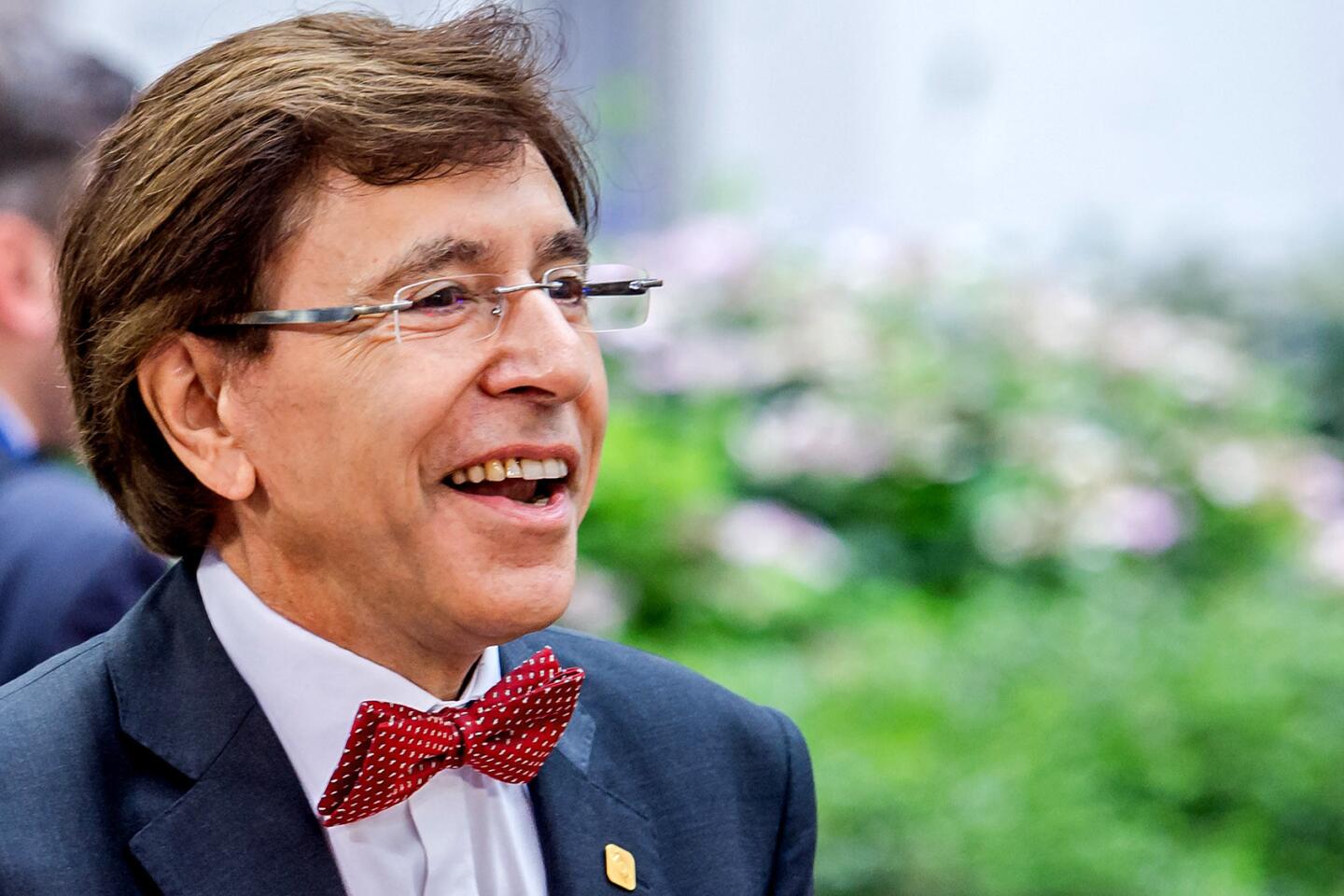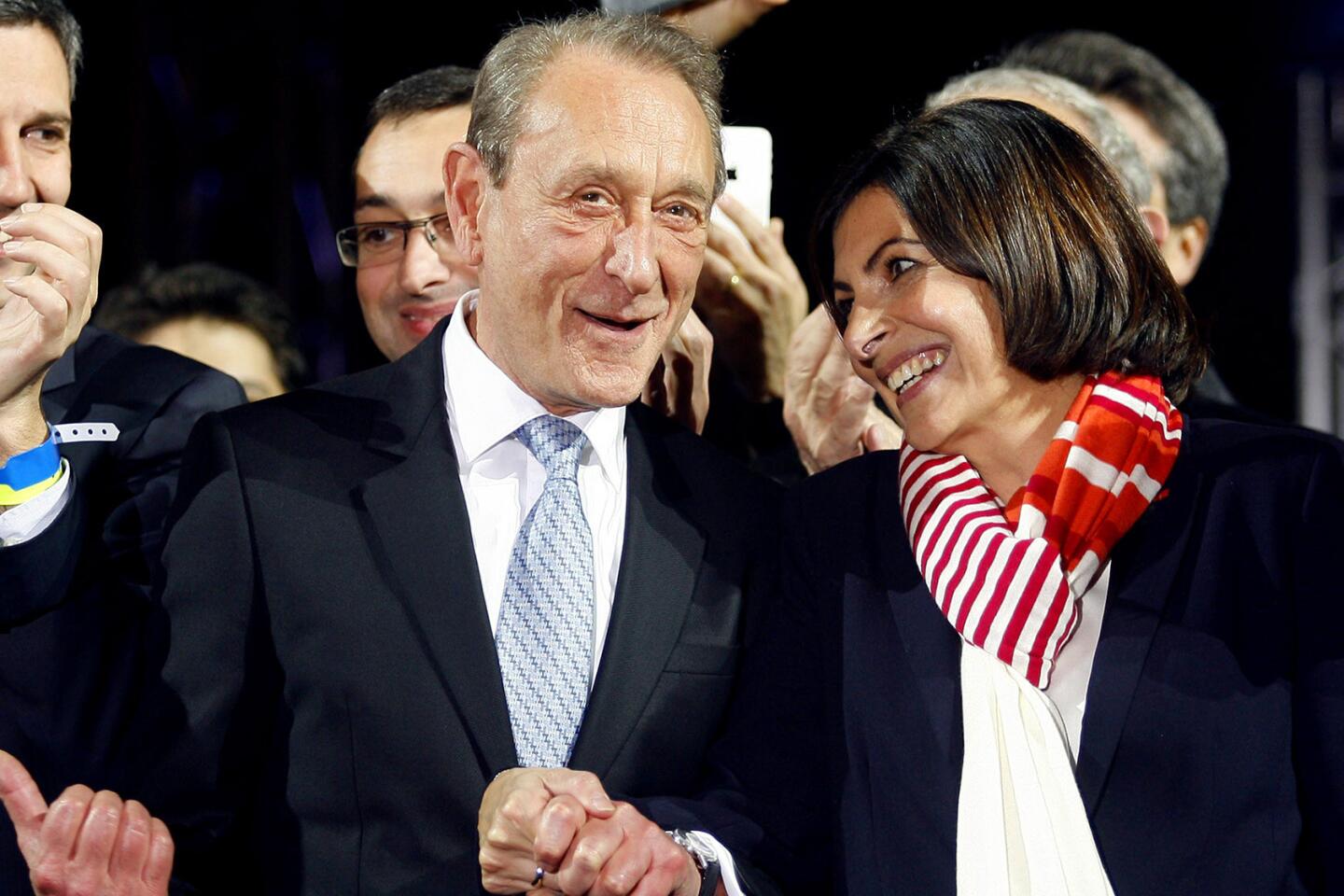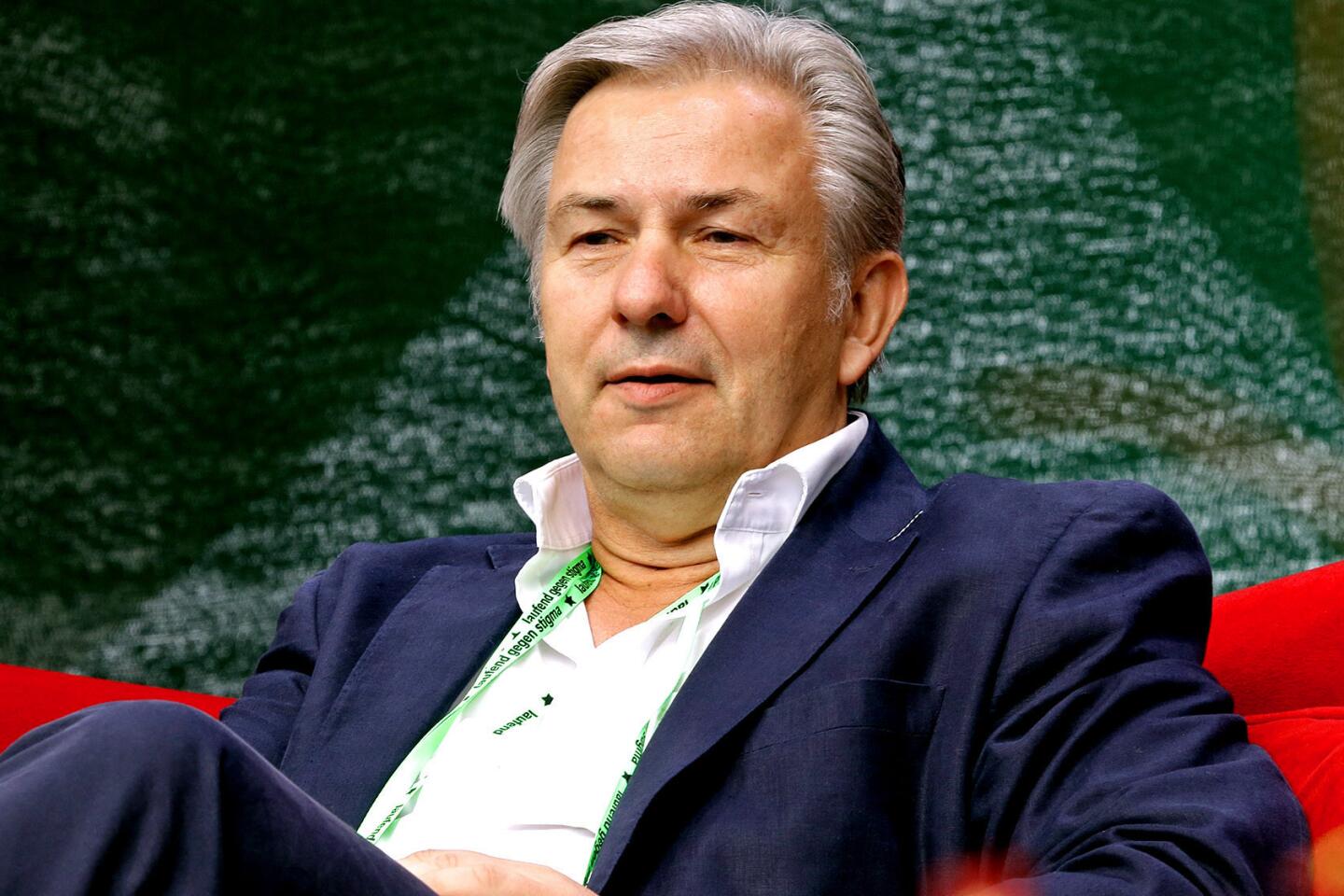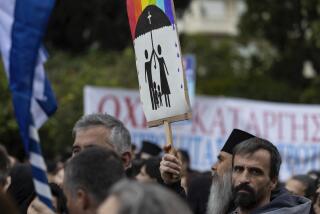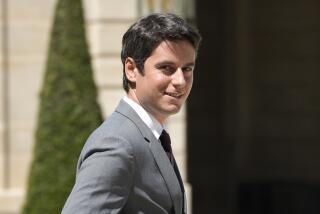Great Read: Luxembourg premier joins vanguard of gay leaders
- Share via
Reporting from Luxembourg — The remarkable thing when this tiny nation legalized same-sex marriage in June wasn’t that the conservative-leaning prime minister, Xavier Bettel, supported the new law.
It was that he might be among the first to take advantage of it.
Bettel and his partner, architect Gauthier Destenay, probably will tie the knot sometime soon. “He asked me, and I said yes,” the 41-year-old prime minister said with an impish grin. “I can’t give you the date, because it’s not official yet.”
He took office in December, after an election campaign in which his sexuality was neither a secret nor an issue. Bettel had opened up about his private life when he was a Luxembourg city councilman, acknowledging his sexual orientation on a radio talk show. (Asking the DJ to play a song by gay pop band Frankie Goes to Hollywood, “The Power of Love,” sealed matters.)
“I have just one life, and I don’t want to hide my life,” Bettel said in an interview here in his office. “But I was not the ‘gay candidate.’ … People didn’t vote for me because I’m gay or I’m straight.”
Nevertheless, he is a pioneer on one of the last frontiers of gay visibility: a politician who not only wins office but also makes it all the way to the top. Since 2009, three have achieved that milestone; the others are Prime Minister Elio Di Rupo of Belgium and former Prime Minister Johanna Sigurdardottir of Iceland.
All are in Europe, where gay rights campaigners have scored significant victories in recent years, in some cases eclipsing gains in the United States.
In 2001, the Netherlands became the first nation to authorize same-sex marriage, three years before gay and lesbian couples could get hitched in Massachusetts. Now, several of Europe’s biggest nations, including France, Britain and Spain, offer marriage equality, which exists only on a state-by-state basis in the United States.
Electing an openly gay person to run the country represents another step in Europe’s evolving attitudes. By contrast, no American state has elected an out-of-the-closet governor, though that could change this fall, in Maine.
“I don’t know how in the States you think about it,” Bettel said, “but I think in Europe, what is important is people respect private choices as long as you are honest.”
::
Not that the continent is a gay utopia.
Although Europe has made strides in combating anti-gay prejudice in hiring and sports, among other areas, outbreaks of homophobic rhetoric and violence still mar the record of even the most tolerant nations. The recent rise of far-right parties across the region has been accompanied in some instances by attacks on homosexuals as well as on immigrants.
Acceptance is strongest in the west and north, but even in Western Europe, at least one major country, Italy — with the Vatican looking over its shoulder — offers virtually no legal protections or rights to its gay and lesbian citizens.
And despite the growing number of gay politicians, there’s no guarantee that their countries embrace or will adopt progressive policies, just as the election of female lawmakers, prime ministers and presidents around the world hasn’t necessarily resulted in the elevation of women’s status in those nations.
“As role models, they are important, especially for young people. But when it comes to issues, we look not at party members but on party platforms,” said Rene van Soeren of COC Netherlands, which promotes gay rights around the world. “What’s most important is that parties really seek … to make it proudly visible that they support LGBT rights.”
Membership in the 28-nation European Union, which demands — but doesn’t necessarily enforce — compliance with nondiscrimination standards, has helped improve the situation in some countries, Van Soeren said. Since Poland joined the bloc a decade ago, gay pride marches have become a fixture on Warsaw’s cultural calendar, and a gay man and a transsexual woman have entered Parliament.
Paris and Berlin, two of Europe’s most vibrant cities, have elected gay mayors.
A 2012 survey asked EU residents to rate, on a scale of 1 to 10, how comfortable they would feel having a gay, lesbian or bisexual person in their country’s highest public office, with 10 signifying “totally comfortable.” Of the then-27 member states, 17 scored an average of 5 or higher; in nine nations, the average was above 7.
The three nations where that has actually come to pass are relatively small ones. The most populous among them, Belgium, is home to 11 million people; Iceland has barely 325,000.
Surrounded by Belgium, France and Germany, Luxembourg covers only 1,000 square miles and has about 500,000 residents, fewer than live in Vermont. But it often wields greater clout in Europe than its size would suggest.
Two of Bettel’s predecessors as prime minister, Jacques Santer and Jean-Claude Juncker, have gone on to serve as president of the European Commission. (Juncker was appointed just last month.) Luxembourg also attracts international talent as a leading global financial center.
Parliament approved the same-sex marriage measure in June on a 56-4 vote, with virtually no public opposition. The law takes effect in January.
“It took its time, but it also gave us the opportunity to raise awareness in the population so that nowadays we did not have this big backlash like [there was] in France,” said Roby Antony of Luxembourg’s Gay and Lesbian Information Center.
“In the States,” he said, “you have very strong forces that are still longing for the old times. Our old times were not very good. Our old times were the Middle Ages, when everybody was poor and ill.”
::
Luxembourg is now healthy and affluent, but still relatively modest: The prime minister’s headquarters, in the capital’s historic district, is virtually indistinguishable from the clutch of old buildings around it, shadowed by the big Roman Catholic cathedral. Security is absurdly minimal compared with the phalanx of officers guarding the White House.
Funky, colorful pieces of contemporary art, which reflect his gregarious personality, adorn the walls of Bettel’s office, culled from his collection at home. (There is no official prime ministerial residence.) A black-and-white photo of him with his partner, Destenay, sits on his desk.
The couple was already in a civil partnership, though a query as to when it happened set off an embarrassed search through the prime minister’s computer files and a sheepish call to Destenay, who didn’t pick up.
“Don’t worry, it’s not important for me to know the date,” a reporter told Bettel reassuringly.
“No, it’s important for him,” his assistant responded with a smirk.
Answer: March 2010.
Bettel had been in office barely six months when the same-sex marriage bill was passed June 18. He dismissed concern that it might be viewed as his personal agenda, noting that the proposal was first drafted by the previous government.
“People who are against it, they will just blame you and say, ‘We have unemployment, we have poverty, we have problems with housing, but this is his biggest priority?’” said Bettel, who is leader of the Democratic Party. “The text was ready. Why should we wait six months or a year just to [mollify] people who will always complain? When it was done, it was done.”
As premier, Bettel has not shied away from public appearances alongside Destenay, including attending the annual national day ceremony held in the cathedral.
After he was first elected to the parliament in 1999 at age 26, “I had invitations for the first two, three, four years where it was ‘Monsieur and Madame.’ But now it’s clear in everybody’s mind,” Bettel said. “If I’m not invited with Gauthier, I won’t go.”
Official trips abroad might prove trickier, particularly to countries that frown on or outlaw homosexuality. When Sigurdardottir visited Beijing last year as Iceland’s prime minister, China’s state-run media studiously avoided any mention of her wife, who accompanied her.
Opportunities for such trips are naturally limited for Bettel and Destenay by the absence of an official role for Luxembourg’s “first spouse.” But the couple plans to call on Greek Prime Minister Antonis Samaras together this summer.
“On his Facebook page, you see quite often he posts photos of them together,” said Laura Philips, 20, a college student from outside the capital. “It never makes headlines or anything. People are indifferent, but in a good way.... It’s a sign of a modern society.”
At any rate, should a cabal of homophobic Luxembourgers scheme to topple Bettel from power, it probably would have to contend with the coalition government’s No. 2 leader, Deputy Prime Minister Etienne Schneider.
Schneider, 43, is head of the Luxembourg Socialist Workers’ Party and serves as economy minister and defense minister.
He’s openly gay, too.
More to Read
Sign up for Essential California
The most important California stories and recommendations in your inbox every morning.
You may occasionally receive promotional content from the Los Angeles Times.
